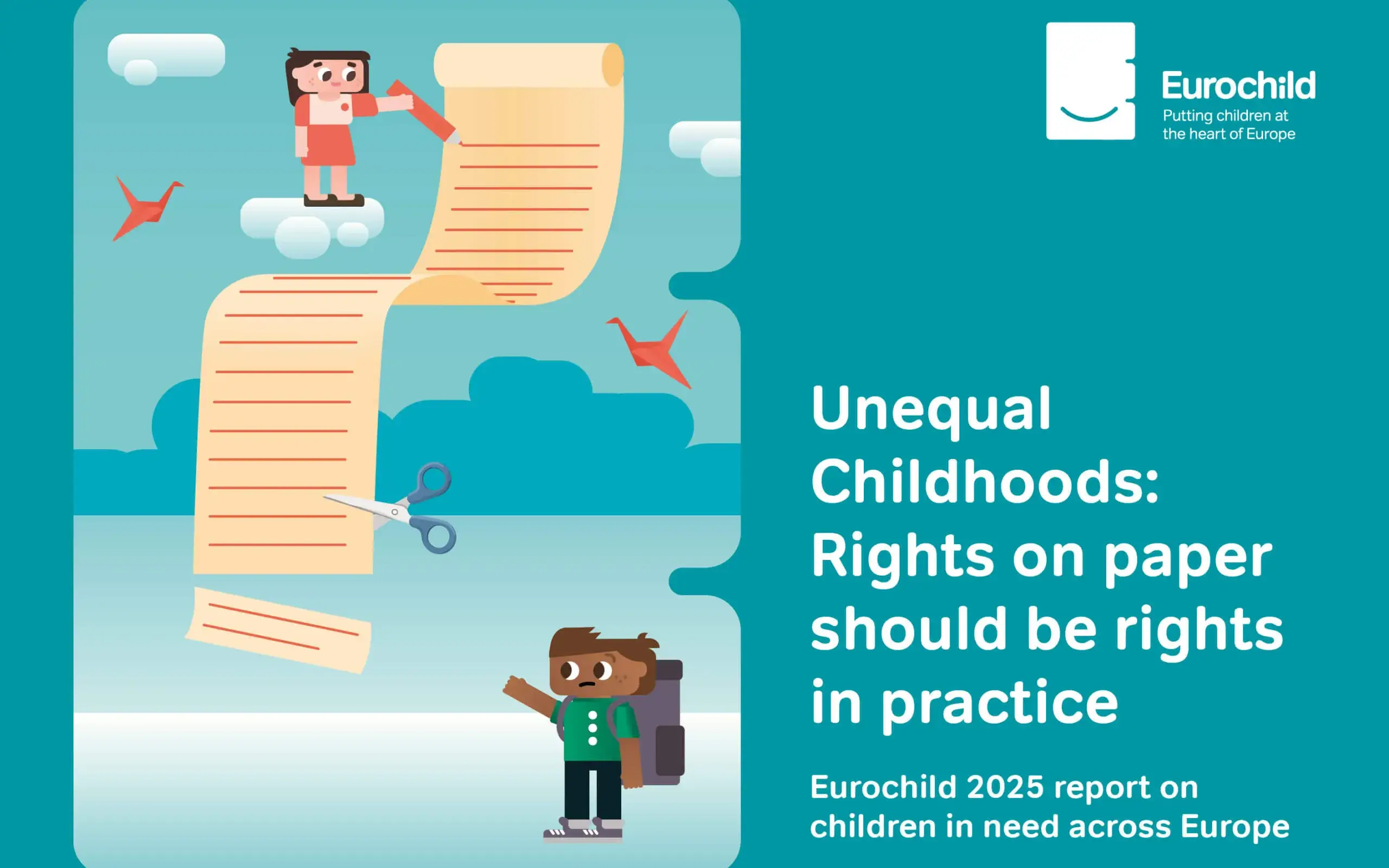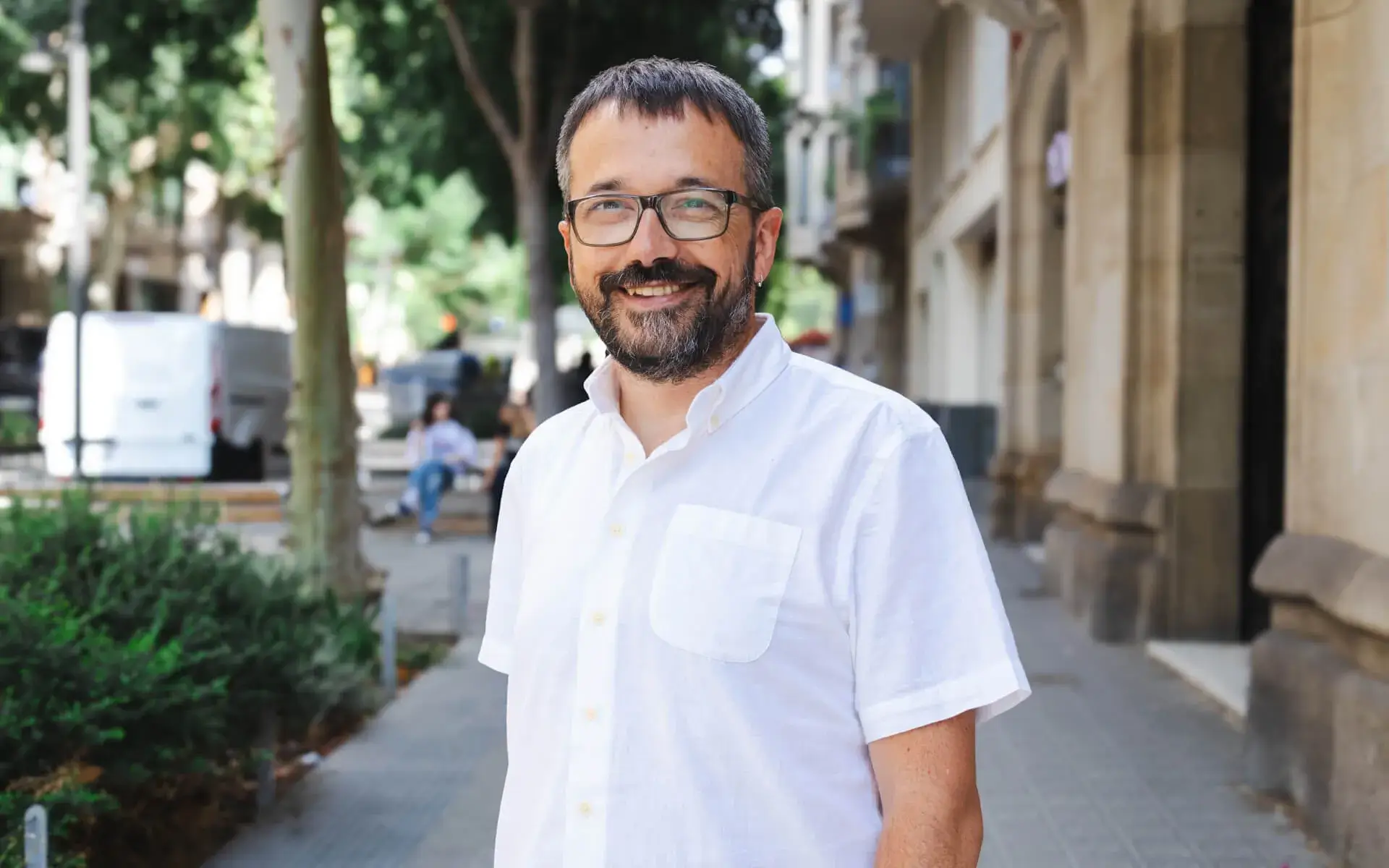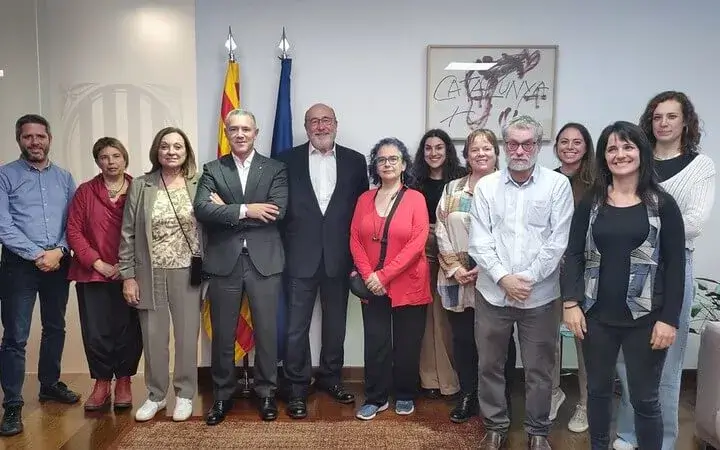Mieke Schuurman: "it is important to bring in children’s opinions into the conversation on child poverty"
The Director of Child Rights & Capacity Building at Eurochild, shares with us how they believe that it is the responsibility of Member States to ensure that child poverty is reduced with a minimum of 5 milllion children by 2030.
On the occasion of World Children's Day, we interview Mieke Schuurman, director of children's rights and training at Eurochild, a network of organizations and people working with and for children in Europe. Eurochild has been one of the collaborating entities in the organization of the day 'Social Europe: A new impetus to local and European action in defense of children's rights', promoted by the Children's Platform of Catalonia ( PINCat), together with Diplocat, and held last Thursday, November 16. On the occasion of the celebration.
In this conversation, Schuurman reviews the state of children's rights in Europe, as well as the measures that have been developed from the European Union (EU) in order to promote children's rights, among other aspects .
What do you do as an organization? What are your main goals?
Eurochild is the leading network of organisations and individuals working with and for children throughout Europe, striving for a society that respects the rights of children. We influence policies, build internal capacities, facilitate mutual learning and exchange practice and research. As Europe’s leading and largest network for civil society organisations (CSOs) working with and for children, our membership spans 195 organisations and individual experts across 41 European countries, including 18 National Partner Networks that are national-based networks. In total, our network represents more than 4,000 diverse organisations, individual experts and authorities.
What can you tell me about your strategic framework 2022-2023?
Our activities follow the organisation’s strategic framework (2022-2025) which has 4 over-arching goals: Making children’s rights a public policy priority in Europe; Strengthening the community of children’s rights activists across Europe; Elevating the voices of children and young people, in particular those experiencing disadvantage; and Consolidating the network for improved sustainability and impact.
What are the main thematic Areas you work on?
The main thematic areas we focus on are tackling child poverty & inequality; reforming child protection systems; making children’s rights a public policy priority in human rights and democracy; children’s rights in the digital environment, including combating online abuse of children, and early childhood care and development. We recognise that children and young people themselves need to be actively involved in shaping the change and that adults can learn from their insights and experience. That’s why child and youth participation is at the heart of everything we do.
What is the global panorama of the rights of the child in Europe?
We would like to emphasize that one of the challenges for children is that the number of children at risk of poverty has gone up from 20.4% in 2021 to 24.7%, which means 20 million children, in 2022, as the latest Eurostat figures 2022. At national level, the highest values were reported in Romania (41.5 %), Bulgaria (33.9 %) and Spain (32.2 %). On the other hand, the lowest shares were recorded in Slovenia (10.3 %), Czechia (13.4 %) and Denmark (13.8 %). Eight Member States presented the same pattern, with Slovakia and France recording the highest increases: 5.0 and 4.7 percentage points, respectively. On the other side, the largest decreases were observed in Luxembourg (- 5.4 pp), Hungary (- 5.2 pp) and Greece (-3.9 pp).
What prevailing challenges to its guarantee can be observed across the region and what differences exist in-between countries?
Countries with the child poverty challenge should allocate 5% from the European Social Fund plus to tackle child poverty, this includes also Spain. The current state of play is that several countries have allocated more than the requested 5% of ESF+, for now EUR 8.9 billion ESF+ support to address child poverty has been programmed by 23 Member States. Eurochild believes that it is the responsibility of Member States to ensure that child poverty is reduced with a minimum of 5 milllion children by 2030.
What tools did the EU develop over the last years to promote the rights of the child? Are they effectively framed under a rights-based approach?
In 2021 the EU adopted an EU Strategy on the Rights of the Child, which includes 6 thematic pillars, including child participation, socio-economic inclusion, combating violence against children, child-friendly justice, the digital environment and the global dimension. In the same year the EU adopted a specific instrument to tackle child poverty the European Child Guarantee. The Child Guarantee aims to prevent and combat social exclusion by guaranteeing access of all children to free education, free healthcare, healthy nutrition, adequate housing and free early childhood education and care.
Both instruments have been developed with input from over 10,000 children, actively implementing the right for children to participate in decisions that are affecting them. Eurochild has been actively contributing to both the EU Strategy on the Rights of the Child and the Child Guarantee and supported the consultations of children across Europe.
How are these measures impacting policy-making in member states and, necessarily, contributing to improve the lives of children in Europe?
Eurochild is following the implementation of the Child Guarantee in the EU Member States and the National Action Plans (NAPs) that they have to publish. At the moment there are still 3 National Action Plans which are not published, namely from Austria, Latvia and Romania. We are calling for all Action Plans to be published as soon as possible, as in November it will have been 20 months since the deadline passed for all NAPs to be published.
Eurochild has published NAP ‘one pagers’, which provide clear overviews of the content of each of the published NAPs. There will be an update on the implementation of the Child Guarantee from our members in Eurochild’s Flagship Report that will be published on World Children’s Day, 20 November 2023.
What has been the role of European civil society networks like Eurochild in pushing for and contributing to the implementation of these policies?
Eurochild has been actively advocating together with other civil society organisations for a specific instrument to tackle child poverty since 2015. At the same time we have been advocating for a European Strategy on the Rigths of the Child to ensure the commitment of the European Union institutions to the implementation of children’s rigths, based on the UN Convention on the Rights of the Child.
However with regard to the implementation of the Child Guarantee, many of our members and children (as stakeholders) have not been involved in the development or the implementation of the National Action Plans. If they were invited to meetings, it was often seen as a tokenistic gesture. The European Commission has described these Plans as ‘living documents’ that will be adjusted through their realisation. To update the Plans, in accordance with the needs of children at risk and to achieve the best outcomes, meaningful participation of civil society organisations and children must be ensured. This requires either developing a new mechanism or expanding the existing one with specific terms of reference and timeframe.
How do you plan to continue influencing these policy debates and the implementation of the Child Guarantee over the next years?
Eurochild will continue working with its members to support Member States to implement the Child Guarantee and ensure that children growing up in marginalised circumstances will be identified in order to have access to basic services. We will also continue working with the European Commission National Coordinators, the European Parliament and EU Presidencies. Eurochild will participate in the upcoming meeting of Child Guarantee National Coordinators taking place on 3 November in Valencia under the Spanish EU Presidency. The aim of the high-level meeting is to adopt the Valencia Declaration, which will ensure a continual commitment by Member States to tackle child poverty and social exclusion.
Eurochild has contributed to a European Parliament draft motion for a resolution ‘Children first – beyond the Child Guarantee, two years on from its adoption’
(2023/2811(RSP) which was adopted by the European Parliament Committee on Employment and Social Affairs on 25 October and is expected to be adopted in plenary on 20 November, World Children’s Day. It builds upon the request from December 2022 to upscale the European Child Guarantee by 20 billion EUR for 2021-27, as well as other suggestions we made such as Early Childhood Education and Care. It also asks the Commission to set-up a European children’s authority with a mandate to establish a permanent system of monitoring, support and cooperation between the Commission, the Member States and relevant stakeholders and NGOs. In addition, it asks to support the expansion of the European Child Guarantee to the accession countries and encourage them to implement it.
What is your opinion about bringing in children’s voices in the debate on child poverty?
Over the past year Eurochild has consulted over 200 children in four EU Member States, Bulgaria, Croatia, Estonia and Malta to understand children’s perceptions of child poverty and bring in their voices into the conversation. Eurochild believes it is important to bring in children’s opinions into the conversation on child poverty as no one understands the lived experiences of children better than children themselves. As one of the children mentioned “Poverty leads to oppression and worry. It negatively reflects on young people’s self-confidence, and [it] can leave traces in the human psyche.”
In the Eurochild report ‘Poverty takes away the right to childhood’, children provided views on the impact of child poverty on children’s lives, how poverty can affect children at school, at home, within their community and how it can lead to bullying. They also came up with recommendations for decision-makers on what needs to change.
Eurochild is supporting the organization of the "Europa Social" debate, to be held next 16th November by Taula del Tercer Sector, PINCAT and DIPLOCAT: why do you believe local third sector organizations should engage in this type of debate and how can they help enhance their work?
Eurochild believes that engaging local third sector organisations in the implementation of the Child Guarantee is essential to ensure that children growing up in marginalised circumstances can be reached and have free access to education, early childhood education and care, housing, health care and nutrition. They have a key role to play in helping to raise awareness on the Child Guarantee and holding their local, regional and national governments to account to involve them in the implementation of the Child Guarantee. They can also advocate with the implementation authorities to ensure that children themselves are able to contribute.
Local third sector organisations have an important role to play in implementing children’s rights and bringing in the perspectives from working directly with children growing up in vulnerable circumstances.







Add new comment